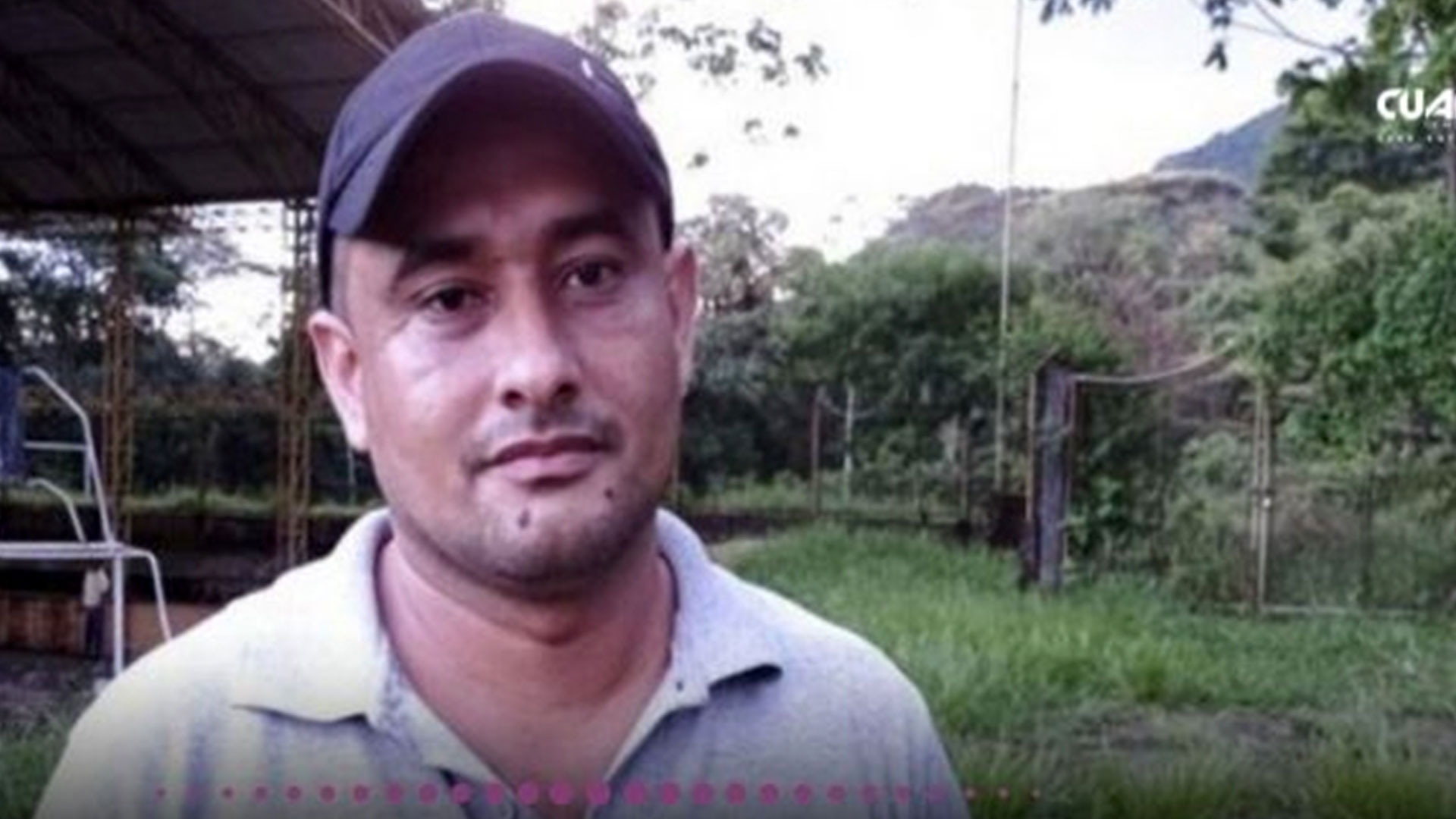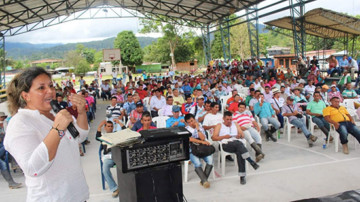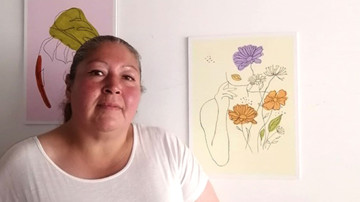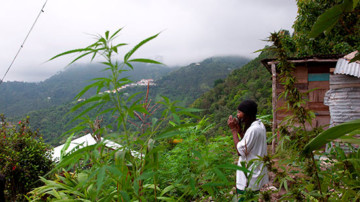
My name is Arnobis Zapata Martínez. I am from the south of Cordoba. From the municipality of Puerto Libertador. I started my community leadership in 2007. In the village of Bocas de Rio Sucio, as president of the Board for Communal Action (Juntas de Acción Comunal). From there I began to work for the rights of the peasants, especially making visible the violations of human rights and international humanitarian law suffered by the peasants in that village.
After several years, we started to organise more Boards in the corregimiento (subdivision of a rural municipality) of Juan José, together with other comrades. We started about seven. We organised the peasants around the Boards to defend the rights of the peasants in the territory. Until then, the only thing they knew about the authority of the state was its military boot.
Then we created the Southern Cordoba Farmers’ Association in 2010. From there, we began to strongly advocate for the rights of peasants, demanding public goods for our area. Our starting point was that the peasants who lived in the area where we formed our association were peasants who were victims of the armed conflict. And stigmatised by the state because the state considered them to be part of, or associated with, the guerrilla.
These peasants in this part of the country lived especially from coca cultivation. But it’s worth remembering that coca cultivation arrived in this part of the country in 1997, introduced by the Paramilitarism. They were the ones who introduced coca to this area as a solution to the economy that they wanted to implement in the region. It is also urgent to remember that it was these paramilitaries who in previous years (1994-1997) destroyed the peasant economy in the area. They destroyed the cooperatives. They killed, assassinated, and displaced local populations.
We created the Association then to mobilise together with the populated areas of the municipality of Puerto Libertador. We organised our first strike in Puerto Libertador in 2010-2011. It lasted about a month and a half. We tried to get the army, which was violating human rights, to leave the territory. We managed to get them to listen to our demands for public services that did not exist in the area.
At the same time, peace talks began with the FARC. And we began to share the information that what was coming out of the negotiating tables. Specifically, the issue of Point 4 of the Peace Agreement [on drug policy].
In 2015, we began to discuss the crop substitution programme with the peasantry. And how we could participate in this crop substitution policy. We organised ourselves for that purpose. We created the anti-eradication committees in the south of Córdoba. With the aim of pressuring the national government not to implement forced eradication but to start implementing the PNIS [Colombia’s programme to substitute crops used for illegal purposes] created by the Peace Accord.
With these Anti-Eradication Committees, we told the government: we want voluntary crop substitution. From this we came up with a proposal that this territory should be taken into account.
I participated in the whole construction of the PNIS. I was a delegate to Havana to talk about it with the peace negotiators. Along with seven other Colombian comrades. We tried to come up with a proposal about our vision for the Crop Substitution Programme.
We then did pedagogy in our territories and also confronted the Santos government’s policy of forced eradication in the region. With the creation of the PNIS, we created the National Coordinating Committee of Coca, Poppy, and Marijuana Growers with two objectives: to support voluntary substitution and secondly, to preside over the government with actions to prevent forced eradication so that the government would put voluntary substitution at the forefront.
I was coordinator of the patriotic march in Cordoba. Then I was also a member of the National Association of Peasant Reserves. Then President of the National Association of Zones of Peasant Reserves. Currently National Association of Peasant Reserves.
We tried to demand the implementation of the Peace Accord. And to demand change in the drug policy in Colombia. And to promote citizen action against coca cultivation. A discussion that does not consider the growers as criminals. But also, as subjects of rights. And that the Colombian state invests in public policies so that this peasantry can get out of coca cultivation.
In all these discussions, we have sought to support the judicial actions of our organisations against glyphosate. Defending the PNIS. Proposing solutions such as the Peasant Reserve Zones to mitigate the government’s economic policies that affect us. And also denouncing the armed groups that put pressure on the peasantry.
The risks taken by us in this are quite high. I have been attacked twice to date. I am alone without my family for their protection. Because the risks that come with being an activist are threats of assassination at any moment. And also, the stigmatisation for defending a different solution to the issue of coca and coca cultivation in Colombia. We are proposing policies so that everything does not continue to be the same.
That is what we have been doing. These are the risks.
I have always represented the peasantry. Not as a solitary actor, but as an organiser together with my comrades. And the trust of my peers to represent them gives me the encouragement to keep working.
There is much that is left out of this story, including my involvement in peace councils, in sharing knowledge about the government’s policies on land.
I have been doing this from a young age until today. And I continue to this day.
Photo: Arnobis Zapata Martínez
Arnobis’ story was originally compiled by Pedro Arenas (Corporación Viso Mutop). His story has been translated from Spanish and edited for clarity.



